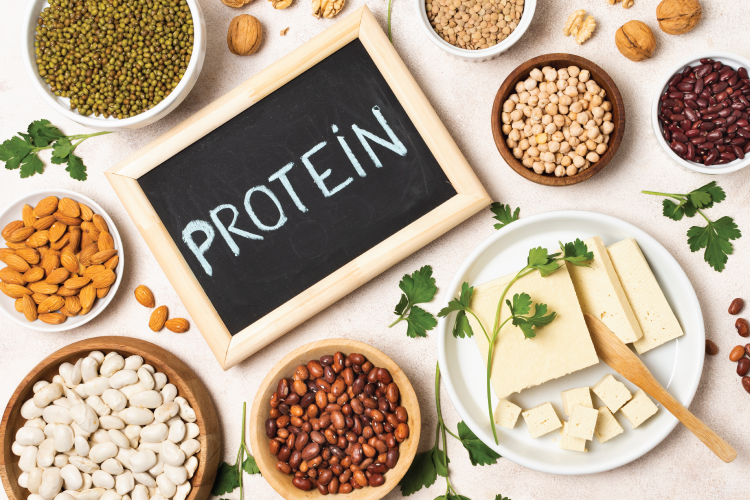Foods to Eat and Avoid for a Healthy Stomach
October 26, 2023
A healthy gut is the cornerstone of overall well-being. Our digestive system plays a vital role in processing the food we eat, absorbing essential nutrients, and eliminating waste. But maintaining a healthy stomach isn't just about what you eat; it's also about what you avoid. In this blog, we'll explore the symbiotic relationship between a balanced diet and a healthy gut, and provide a list of foods good for digestion.
Foods Good for Digestion
1. Fiber-rich Foods:
Fiber is the unsung hero of digestive health. It helps maintain regular bowel movements, prevents constipation, and supports the growth of beneficial gut bacteria. Whole grains like oats, brown rice, and quinoa, as well as fruits and vegetables like apples, broccoli, and sweet potatoes, are excellent sources of dietary fiber.
2. Yogurt and Fermented Foods:
Probiotics are the friendly bacteria that live in your gut and play a significant role in digestion. Foods like yogurt, kefir, sauerkraut, kimchi, and miso are packed with probiotics. These foods help balance the gut flora, aid digestion, and improve nutrient absorption.
3. Lean Proteins:
Including lean sources of protein in your diet, such as chicken, turkey, fish, and plant-based options like tofu and legumes, provides essential amino acids that are crucial for tissue repair and overall health. Protein is digested in the stomach, and a balanced intake ensures proper digestion and nutrient absorption.
4. Ginger:
Ginger has been used for centuries to alleviate digestive discomfort. It can help relax the intestinal tract, reduce inflammation, and soothe indigestion. Try adding fresh ginger to your tea or meals to support healthy digestion.
5. Herbal Teas:
Herbal teas like peppermint, chamomile, and ginger tea can provide relief from digestive problems. They help relax the stomach and reduce inflammation. Peppermint, in particular, has been shown to relieve symptoms of irritable bowel syndrome (IBS).
6. Berries:
Berries like blueberries, raspberries, and strawberries are rich in antioxidants and fiber, which are beneficial for gut health. Antioxidants protect the gut lining from oxidative stress, and the fiber supports regular bowel movements.
7. Olive Oil:
High-quality, extra-virgin olive oil is rich in monounsaturated fats and contains compounds that reduce inflammation. It's a healthy option for cooking and dressing salads.
8. Nuts and Seeds:
Almonds, walnuts, flaxseeds, and chia seeds are packed with fiber, healthy fats, and essential nutrients that support overall health and digestive function. Incorporating a handful of nuts and seeds into your daily diet can be beneficial.
9. Fruits and Vegetables:
A colorful variety of fruits and vegetables ensures you get a broad spectrum of vitamins, minerals, and antioxidants. These nutrients not only support digestion but also help maintain the health of the gut lining.
Foods to Avoid for a Healthy Gut
1. Highly Processed Foods:
Processed foods are often high in sugar, unhealthy fats, and artificial additives, which can disrupt the balance of gut bacteria and lead to inflammation. Avoid fast food, sugary snacks, and heavily processed meals.
2. Excessive Sugar:
A diet high in added sugars can promote the growth of harmful bacteria in the gut and lead to various digestive issues. It's essential to limit sugary drinks, sweets, and processed foods.
3. Artificial Sweeteners:
While marketed as a low-calorie alternative, artificial sweeteners like aspartame and saccharin can negatively impact gut bacteria and cause digestive problems in some people.
4. Highly Refined Grains:
Refined grains, such as white bread and white rice, lack the fiber and nutrients found in whole grains. These grains can lead to blood sugar spikes and poor digestive health.
5. Fried and Greasy Foods:
Fried and greasy foods can slow down the digestive process and lead to heartburn and indigestion. They can also contribute to unhealthy weight gain, which is a risk factor for digestive issues.
6. Excessive Alcohol:
Alcohol can irritate the digestive tract, leading to acid reflux and gastritis. Overconsumption can disrupt the gut microbiome and impair nutrient absorption.
7. Caffeine:
While moderate caffeine consumption is generally fine for most people, excessive caffeine intake can cause acid reflux and irritate the stomach lining.
8. Soda and Carbonated Drinks:
Carbonated
beverages can lead to bloating and gas due to the release of carbon dioxide in the digestive tract. The sugar content in soda can also negatively impact gut health.
9. Dairy for Lactose-Intolerant Individuals:
Dairy products can be challenging for people with lactose intolerance. If you have difficulty digesting lactose, it's best to opt for lactose-free or dairy alternatives.
10. Spicy Foods:
Spicy foods, while enjoyable for many, can irritate the stomach lining and cause heartburn. If you're prone to acid reflux, it's best to limit your consumption of highly spicy foods.
A healthy stomach is essential for overall well-being, and what you eat has a significant impact on your health. Incorporating fiber-rich foods, yogurt, lean proteins, ginger, and other gut-friendly options into your diet can promote good digestive health. On the other hand, avoiding highly processed foods, excessive sugar, artificial sweeteners, and other harmful choices can help prevent digestive issues.
Remember that everyone's digestive system is unique, so it's essential to listen to your body and make dietary choices of foods good for digestion. For fast and efficient digestion your best choice is Gas-O-Fast Asli Jeera!
Disclaimer This blog solely intended for the educational/informational/awareness purposes and is not a substitute for any professional medical advice, diagnosis or treatment. Please consult your doctor/healthcare professional before acting on the information provided on the blog. Reliance on any or all information provided in the blog, is solely at your own risk and responsibility. Mankind Pharma Limited shall not be held liable, in any circumstance whatsoever.
